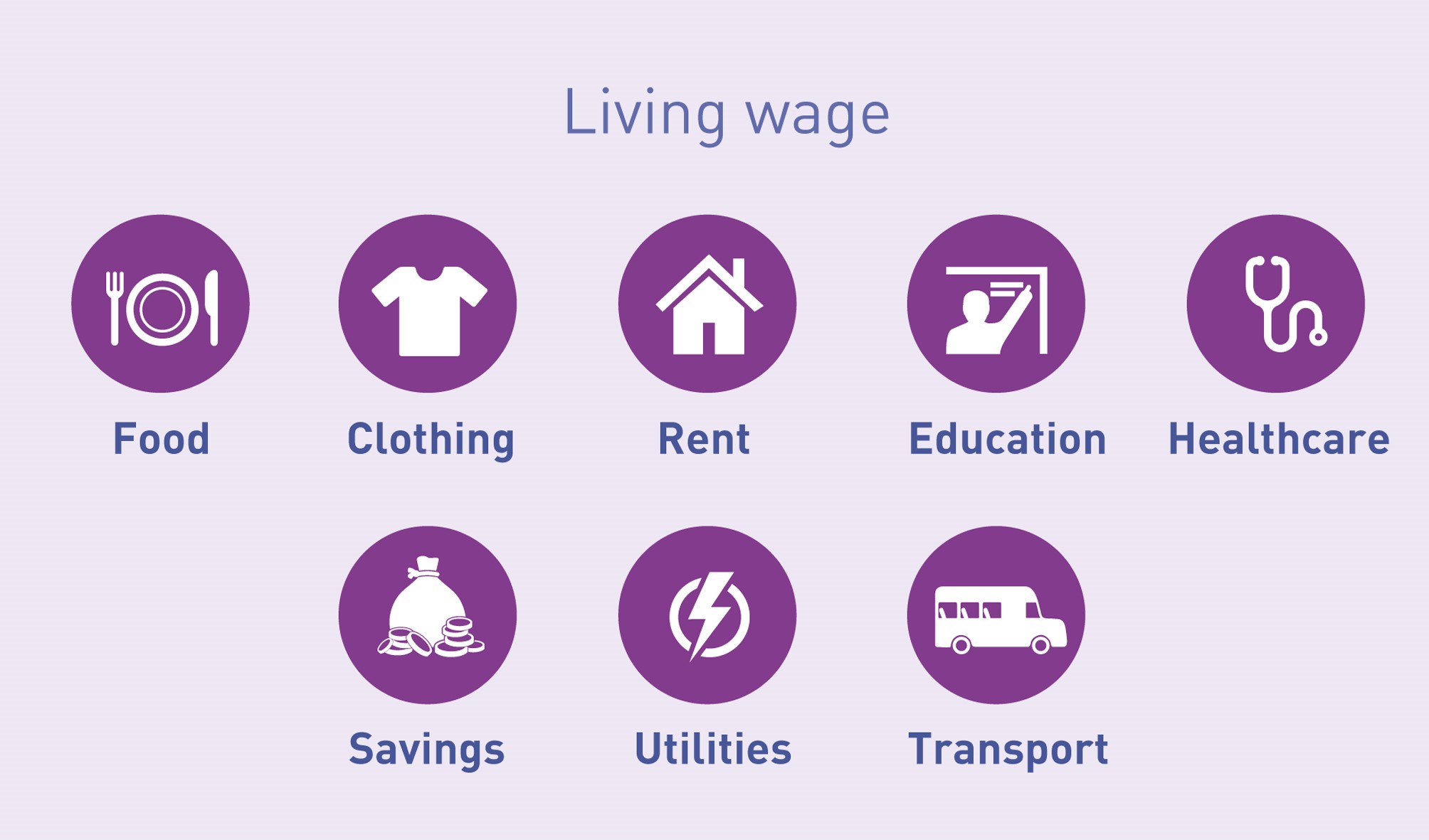A wake up call for companies to strengthen due diligence in their supply chains
Sugarcane accounts for more than 85% of the global sugar supply. Unfortunately the people who cultivate, harvest, and process this vital crop have to endure extremely long days under challenging conditions. Despite the increased profits in the sugar and food sectors, alarming numbers of sugar workers earn below living wage. They live in poverty, unable to meet basic needs for food, housing, and healthcare.
Findings from CNV Internationaal's Fair Work Monitor realized in 6 Latin American countries, reveal a troubling and persistent living wage gap, among agricultural workers but also among people in industrial jobs. This highlights the urgent need for fair compensation for people working in the sugarcane production.
CNV Internationaal has published the latest findings of the Fair Work Monitor in collaboration with IDH and the Anker Research Institute. The monitor is based on direct input from workers in the sugar sector, collected together with local trade unions, during the harvest period in 6 Latin American countries. CNV Internationaal is very grateful to the participants of the Dutch-Postcode-lottery for supporting the development of the Fair Work Monitor.

A living wage is the remuneration received for a standard work week by a worker in a particular place sufficient to afford a decent standard of living for the worker and her or his family.
The findings of the latest Fair Work Monitor highlight the harsh conditions of agricultural workers. Despite rising profits in the sugar and food sectors, sugarcane workers report they earn far from a living wage.
This living wage gap has profound impact not only for the workers, but also for their families and their community”, says Maurice van Beers, CNV Internationaal's Fair Work Monitor Programme Lead.
“These findings are a critical wake-up call for international companies to act responsibly and ensure fair, sustainable working conditions not only through internal measures, but also by supporting collective solutions such as social dialogue and sectoral agreements.
The workforce producing sugarcane for the world's food and beverage supply are an indispensable part of the supply chain. "
Fair Work Monitor Key Results

The Fair Work Monitor is a participative monitoring tool developed by CNV Internationaal to gather data directly from the workers.
The results of this sugar monitor are collected among workers in Bolivia, Colombia, Costa Rica, Honduras, Nicaragua and El Salvador.
The monitor overall shows severe living wage gaps among both agricultural and industrial workers surveyed. Further analysis also reveals significant differences:

Industrial workers
When looking across all 6 Latin American countries included in the study, the proportion of industrial workers earning below the living wage ranges between:
- 13 percent in El Salvador
- 74 percent in Costa Rica

Agricultural workers
For agricultural workers: the proportion of people earning below the living wage is even more pronounced:
- 55 % in El Salvador
- 96 % in Colombia
Consequences
Workers have reported that as a consequence of earning below a living wage, they have to deal with problems including:
- Food insecurity, not being able to afford vegetables or fruit, and / or to buy enough food in general
- Limited access to healthcare services
- Bad housing
The Fair Work Monitor also shows significant disparities between agricultural and industrial workers in:
- Job security
- Union representation

Agricultural workers versus industrial workers
The Fair Work Monitor has revealed a wage gap between people in agricultural areas, working on the fields and those in industrial areas, working in the sugar mills.
Agricultural workers:
- have a much lower chance of earning a living wage
- suffer a much bigger gap between a living wage
- tend to have more precarious and unstable job conditions
- are less likely to be unionized.
Industrial workers:
- are more likely to earn a living wage,
- suffer smaller gaps between a living wage
- are more likely to be directly employed and have permanent contracts
- are more likely to be union members.
To learn more about the Fair Work Monitor methodology and results, download the report: Strengthening the Case for a Living Wage in the Latin-American Sugarcane Industry>
(also available in Spanish)
Wake up call to act responsibly
General tendencies show companies increasingly outsource their labour force not only to reduce costs, but also to shift responsibility. Profits in the sugar and food sectors continue to rise. Nevertheless, sugarcane workers still appear to earn far from a living wage. Maurice van Beers, CNV Internationaal's Fair Work Monitor Programme Lead, underlines:
"A living wage is necessary to meet basic needs of workers. It’s also necessary for a strong sustainable food supply chain.
Closing this gap towards a living wage would greatly improve the quality of life of people producing sugarcane . Better wages would enable them to buy sufficient food, afford decent housing and provide a stable future for their families.
The lack of living wages is also related with other labour rights violations like:
- forced labour
- child labour
- bad OHS conditions
We are convinced that - with collaboration of all parties in the supply chain, it is possible to improve the conditions within the sugar supply chain.
As CNV Internationaal we are specifically calling on European – but also US companies that do business in Europe - to drive this change, as they will have to deal with upcoming EU- HRDD legislation”
These findings are a critical wake-up call for international companies to act responsibly and ensure fair, sustainable working conditions.“
Fair Impact Programme
How companies can drive change
European and North American markets are the main outlets for sugar from Latin America. International companies in the sugar therefore have the key to drive positive change. They can choose to work with responsible suppliers and demand fair wages within their supply chain.
“We know this is not easy to realize by companies alone", says CNV Internationaal's Maurice van Beers. “That's why we have developed our Fair Impact Programme." It offers companies various possibilities to collaborate and take the necessary steps towards a fair and sustainable food supply chain."
In this programme, CNV Internationaal provides companies with the tools to go beyond compliance and create impact in their supply chains.
From identifying risks to facilitating stakeholder engagement, this programme guides companies to fair work throughout their supply chain.
Contact us to explore opportunities for your company
Discover the role social dialogue and trade unions can play to improve HRDD within your supply chain and how to take real steps towards a living wage.
Maurice van Beers
Project lead Fair Work Monitor, Regional Coordinator Latin America